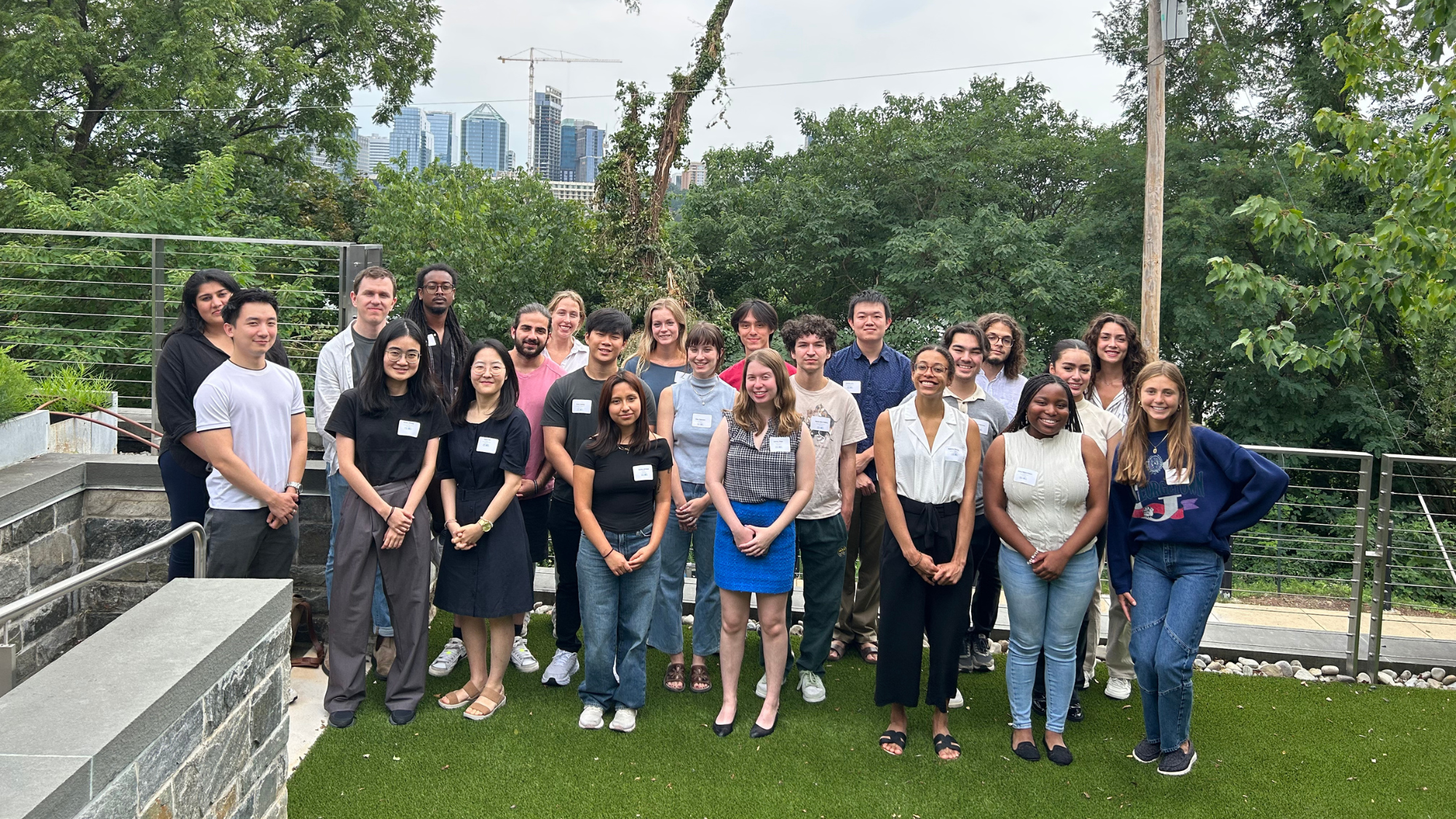Written by Tilde Jaques, Media and Journalism Intern
On August 3rd, MDI hosted its Summer 2023 Research Showcase. MDI student researchers shared posters and flash talks about their summer research projects. Teams of student researchers worked on a range of topics, including forced migration, environmental policy, and education. Students presenting at the showcase were part of the MDI Scholars program, the NSF Research Experience for Undergraduates (REU) program, and the Georgetown Undergraduate Research Opportunities Program (GUROP). These undergraduate and master’s students have a diverse set of majors ranging from computer science and data science to public policy.
The Projects
Throughout the summer, over 20 research students collaborated on six different research projects, each with one or more professors advising and overseeing the team.
The first project, “Top-Down Discipline: Linking Political and Carceral Ideology in Schools,” advised by Dr. NaLette Brodnax, Assistant Professor at the McCourt School of Public Policy, focused on evaluating levels of carceral ideology in schools. The team worked to use linear models to estimate the effects of the carceral state in schools in hopes of better understanding how cultural and political contexts shape education settings.
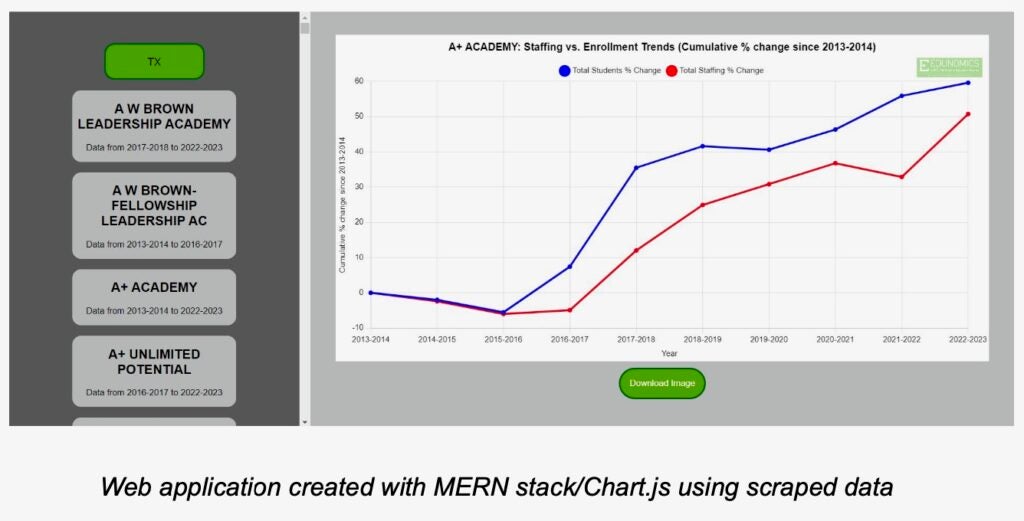
Another project, “Real Time School District Staffing and Enrollment Trends,” advised by Dr. Marguerite Roza, McCourt research professor and Edunomics Lab Director, created tools to provide key information on financial factors and trends for school districts leaders, journalists, and policymakers. While data like this exists on a state-by-state basis, there continues to be a lack of cohesive, easy to interpret data in one place. As a part of this project, student Andrew Lee (SFS ‘24) at the Georgetown Edunomics Lab created a web application for districts to graph their staffing versus enrollment statistics in order to evaluate if spending is being optimized.
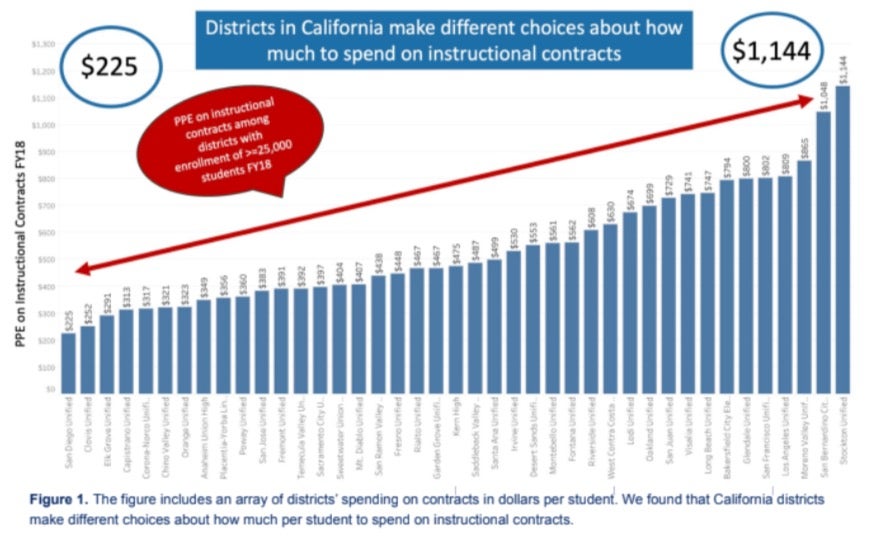
Also advised by Dr. Marguerite Roza, “The Black Box of School District Purchasing” examined the large funds spent on vendor contracts annually by school districts. This graph from a poster made by student Cate Walter (CAS ‘25), showcases how differently school districts in California allocate funds toward instructional contracts. For this project, students compiled large datasets from various locations, cleaned it up, evaluated its relevance, and finally presented it in a clear way. Based on this data, the research team made recommendations as to how school district data can be used in the future for more efficient educational fund allocation.
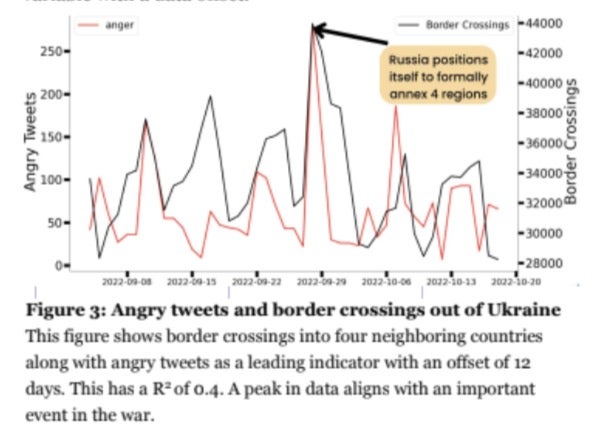
Lisa Singh, Director of MDI and Computer Science Professor at Georgetown, advised a project that focused on “Blending Data to Improve Prediction of Forced Migration.” Alongside her were co-advisors International Migration Professor Katharine Donato, Director of Graduate Studies Ali Arab, Linguistics and Computer Science Associate Professor Nathan Schneider, and Portland State University Computer Science Assistant Professor Ameeta Agrawal. Students used emotion detection classifiers to evaluate emotion in Ukrainian tweets to model both internal and international forced migration. Additionally, the research team evaluated forced migration using data on political violence, Google trends on words related to forced migration, and UNHCR border crossings. This graph from a poster made by Washington State University Student Apollo Callero, Georgetown University Student Kate Liggio (CAS ‘24), and Cornell University Student Eliza Salamon shows the correlation between emotion detected in Ukrainian tweets and border crossings.
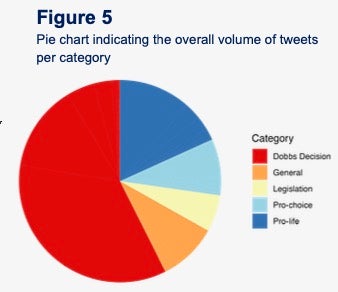
Also advised by Dr. Lisa Singh, another project focused on the online conversation around the 2022 Dobbs vs. Jackson Supreme Court decision that overturned the precedent set in Roe v. Wade which established a constitutional right to abortion. The team focused on certain hashtags and keywords on X (formerly known as Twitter) to evaluate the discourse around Dobbs vs. Jackson to identify the most prevalent hashtags and map the volume of conversation about different events. This pie chart, taken from a poster made by student research team Lauren Stipe (GUROP) and Sabrina Kwenda (SFS ‘23), shows the volume of tweets in each category.
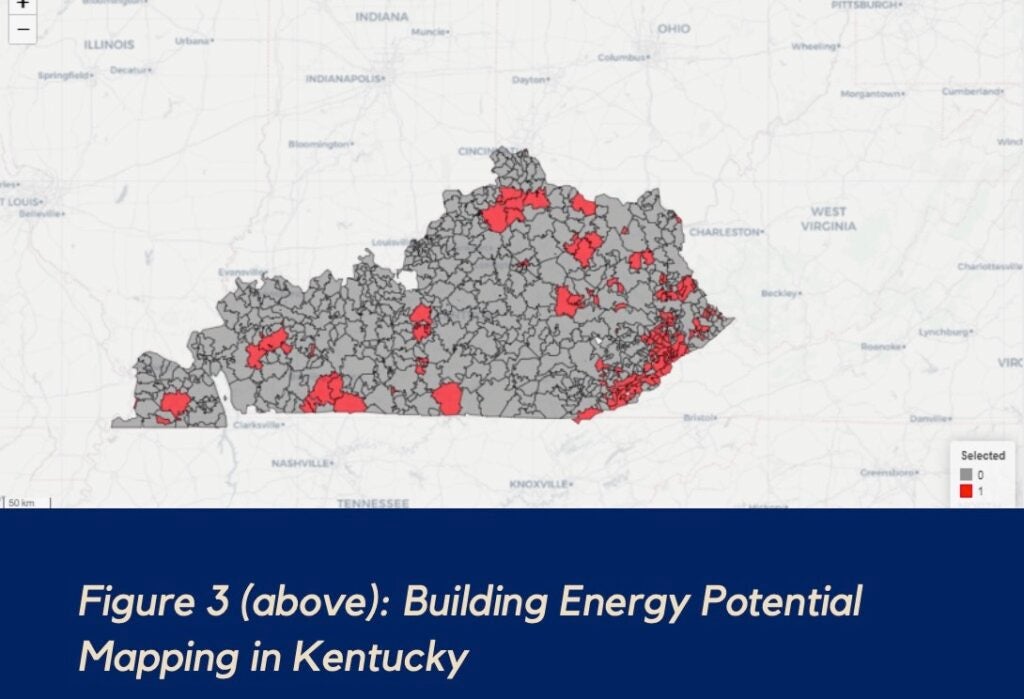
Finally, students worked under Dr. Michael Bailey, Walsh Professor in the Department of Government and McCourt School of Public Policy, on the Environmental Impact Data Collaborative (EIDC). MDI is developing the EIDC to help researchers, policymakers, and communities make environmental policy more fair. This model of possible sites for energy building in Kentucky is just one example of the data visualization projects EIDC is working on.

